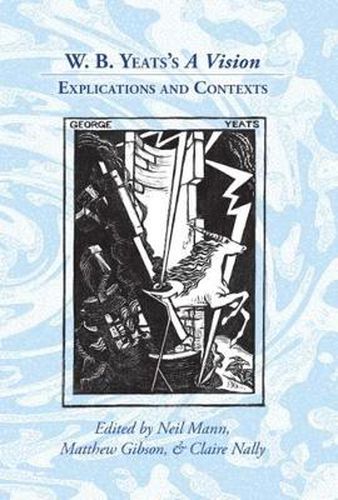Readings Newsletter
Become a Readings Member to make your shopping experience even easier.
Sign in or sign up for free!
You’re not far away from qualifying for FREE standard shipping within Australia
You’ve qualified for FREE standard shipping within Australia
The cart is loading…






‘W. B. Yeats’s A Vision : Explications and Contexts’ is the first volume of essays devoted to ‘A Vision’ and the associated system developed by W. B. Yeats and his wife, George. ‘A Vision’ is all-encompassing in its stated aims and scope, and it invites a wide range of approaches-as demonstrated in the essays collected here, written by the foremost scholars in the field. The first six essays present explications of broader themes in ‘A Vision’ itself: the system’s general principles; incarnate life and the Faculties; discarnate life and the Principles; how Yeats relates his own work to other philosophical approaches; and his consideration of the historical process. A further three essays include an examination of the elusive ‘Thirteenth Cone’, a consideration of astrological features in the automatic script, and a view of the poetry within ‘A Vision’. The final five essays look at contextual themes, whether of collaboration and influence-between husband, wife, and spirits, or with another poet-or the gender perspective within these interrelations, the historical context of Golden-Dawn occultism or the broader political context of fascism in the 1920s and 1930s. Throughout, the different contributors take a variety of stances with regard to texts and the automatic script. This is an important contribution to Yeats scholarship in general and a landmark in studies of ‘A Vision’.
$9.00 standard shipping within Australia
FREE standard shipping within Australia for orders over $100.00
Express & International shipping calculated at checkout
‘W. B. Yeats’s A Vision : Explications and Contexts’ is the first volume of essays devoted to ‘A Vision’ and the associated system developed by W. B. Yeats and his wife, George. ‘A Vision’ is all-encompassing in its stated aims and scope, and it invites a wide range of approaches-as demonstrated in the essays collected here, written by the foremost scholars in the field. The first six essays present explications of broader themes in ‘A Vision’ itself: the system’s general principles; incarnate life and the Faculties; discarnate life and the Principles; how Yeats relates his own work to other philosophical approaches; and his consideration of the historical process. A further three essays include an examination of the elusive ‘Thirteenth Cone’, a consideration of astrological features in the automatic script, and a view of the poetry within ‘A Vision’. The final five essays look at contextual themes, whether of collaboration and influence-between husband, wife, and spirits, or with another poet-or the gender perspective within these interrelations, the historical context of Golden-Dawn occultism or the broader political context of fascism in the 1920s and 1930s. Throughout, the different contributors take a variety of stances with regard to texts and the automatic script. This is an important contribution to Yeats scholarship in general and a landmark in studies of ‘A Vision’.